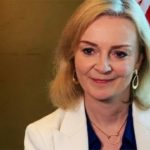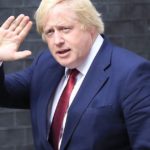Canadian Prime Minister Justin Trudeau has announced his intention to resign after serving as prime minister for nine years and leading the Liberal Party for 11 years. He will remain in office until the Liberal Party selects a new leader, a decision that comes amidst growing political and public discontent.
“I intend to resign as party leader, as prime minister, after the party selects its new leader,” Trudeau, 53, stated at a news conference in Ottawa on Monday. “I care deeply about this country and I will always be motivated by what is in the best interests of Canadians. Despite best efforts, parliament has been paralyzed for months after the longest session of a minority parliament in Canadian history.” He also announced that parliament will be suspended until March 24 while the party elects its new leader.
Trudeau’s resignation follows a series of crises that have eroded his popularity, including economic challenges, internal party divisions, and declining opinion poll ratings. He has faced growing criticism over his handling of key issues such as rising living costs, trade tensions with the United States, and dissatisfaction among voters. Polls suggest the Liberal Party is on track to lose to the opposition Conservative Party, led by Pierre Poilievre, in the upcoming general election later this year.
“This country deserves a real choice in the next election, and it has become clear to me that if I’m having to fight internal battles, I cannot be the best option in that election,” Trudeau explained.
The Liberal Party’s national executive is set to meet this week to discuss leadership issues, likely following discussions within the caucus.
Adding to Trudeau’s challenges, the sudden resignation of Deputy Prime Minister and Finance Minister Chrystia Freeland has dealt a blow to his government. Freeland stepped down hours before delivering her annual fiscal update, criticizing Trudeau’s recent policy decisions, including a sales tax holiday and rebates to workers, which she described as “political gimmicks.” She argued that Canada could “ill afford” such measures amid the threat of significant tariffs being imposed by the incoming Trump administration in the United States.
Donald Trump, set to return to the White House on January 20, has vowed to levy a 25% tariff on all imports from Canada. The former U.S. president has also publicly mocked Trudeau, referring to him on social media as the “governor” of the “Great State of Canada.”
Trudeau rose to power in 2015, championing progressive causes and promising “sunny ways” for Canada. His early tenure focused on tackling climate change and addressing historic injustices against Indigenous communities. However, economic challenges and rising discontent have marred the later years of his leadership. A viral confrontation between Trudeau and a steelworker, who criticized the prime minister for failing to address the high cost of living, underscored Canadians’ frustrations.
Despite winning three elections, Trudeau’s most recent victory in 2021 saw his government reduced to a minority. Since then, the Conservative Party, under Poilievre’s leadership, has built a commanding lead in national polls, outpacing the Liberals by more than 20 points. Poilievre has also gained support from prominent figures such as Elon Musk, who referred to Trudeau as “an insufferable tool” and predicted his political downfall.
Trudeau’s resignation marks the end of an era for the Liberal Party and sets the stage for a highly contested leadership race. The upcoming election, which must be held by October 20 but could be called earlier, will determine the future direction of Canadian politics in an increasingly polarized landscape.








